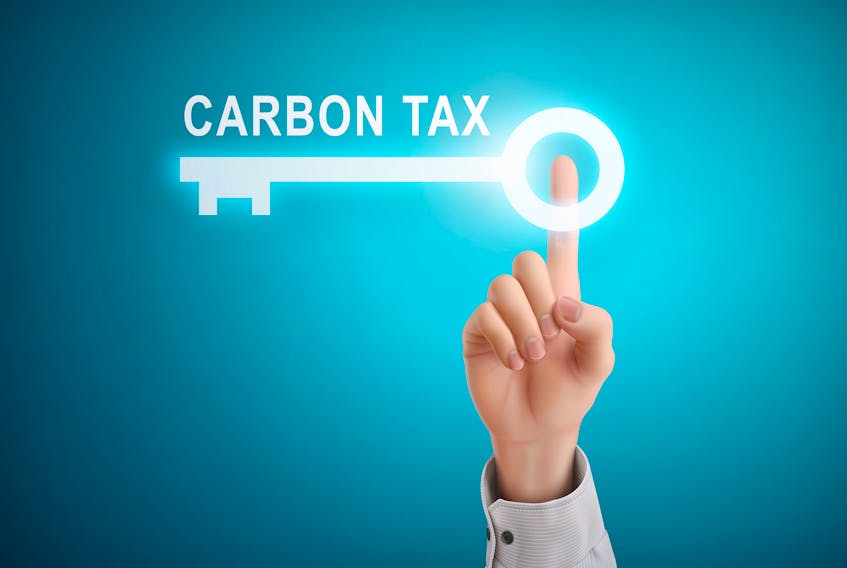In January of 2019, in answer to the federal government’s initiative, Newfoundland and Labrador will be putting a price on carbon pollution.
If the price takes the form of a tax (and all indications are that it will), as of eight months from now businesses will face higher costs for things like gasoline, diesel, propane, and heating oil. The pricing will start at $10 per tonne of emissions in 2019, escalating each year and rising to $50 in 2022.
To put this in perspective, the Government of Canada estimates that a $10 per tonne carbon tax on gasoline amounts to about 2.3 cents per litre.
Related stories:
Newfoundland-grown carbon credits hit market
Even strong climate change believers don't get carbon pricing, survey shows
The Newfoundland and Labrador Environmental Industry Association (NEIA) supports the implementation of carbon pricing.
It’s critical for the future of our planet that we reduce greenhouse gas emissions, and carbon pricing is a proven instrument than can balance both environmental and economic priorities. Action is required, and this is the best tool known and available to us.
But with higher costs just eight months away, we believe it’s time for more discussion about our province’s approach to carbon pricing — and how we’re going to ensure that our industries remain competitive.
The purpose of a carbon tax is to discourage the use of fossil fuels. Businesses that are unable or unwilling to do so will incur tax. In contrast, businesses that can adjust and reduce use are rewarded by avoiding the tax. But what if, for a particular business or industry, the technology doesn’t exist to allow for the reduction of carbon pollution?
In these cases, shouldn’t the penalty be balanced with some support to help find a solution? Experts, like the non-partisan Canada’s EcoFiscal Commission, tell us that the success of carbon pricing depends not just on the discouragement of fossil fuel use, but also on strategic reinvestment of associated revenues back into the economy.
What should this mean in our province?
Expected revenues from carbon pricing aren’t insignificant.
In 2019 Newfoundland and Labrador will likely see tens of millions of dollars, growing to potentially hundreds of millions by 2022. Though other provinces are reinvesting 100 per cent of carbon pricing revenues into programming to help individuals, businesses, and industries deal with rising costs, we accept that Newfoundland and Labrador faces extraordinary fiscal challenges and that this isn’t possible in our jurisdiction.
We do believe that it’s critical to provide some level of support to those industries on which our provincial economy relies, where there may not be ready-made solutions to help reduce carbon pollution. Industry will need help to make the investments required to develop new clean technologies.
As such, NEIA is calling on the province, as part of its carbon pricing plan, to establish a Clean Technology Innovation Fund.
This fund would help innovators create the new products, services, and processes that will foster the long-term sustainability of our provincial economy — from both an economic and environmental perspective. Industry would provide the guidance necessary to foster targeted technology development, the subsequent adoption of which would contribute to our collective environmental objectives.
The world is unquestionably moving towards a lower carbon future, making clean technology a prudent investment. A recent APEC report indicates that the global market for clean technologies is forecast to grow by $1.4 trillion between 2012 and 2022.
Reports suggest that Canada’s clean technology opportunity lies within its natural resource industries, and in Newfoundland and Labrador this translates to offshore oil and gas, mining, forestry, fisheries, and aquaculture.
Developing new technologies and a clean competitive advantage in these industries can have far-reaching impacts; the solutions found here in this province can be exported worldwide, to the benefit of our economy here at home.
Regrettably, unlike in other provinces, there are no dedicated supports available for clean technology development in Newfoundland and Labrador. But the onset of carbon pricing provides an excellent opportunity to put in place a Clean Technology Innovation Fund that will provide industry with access to the resources it needs to mitigate costs, reduce carbon pollution, and build the provincial economy of tomorrow.
With a federal government keen to invest in and partner on clean technology initiatives, the time is right, and the time is now.
J. Alex Templeton
Chair, Newfoundland and Labrador Environmental Industry Association









